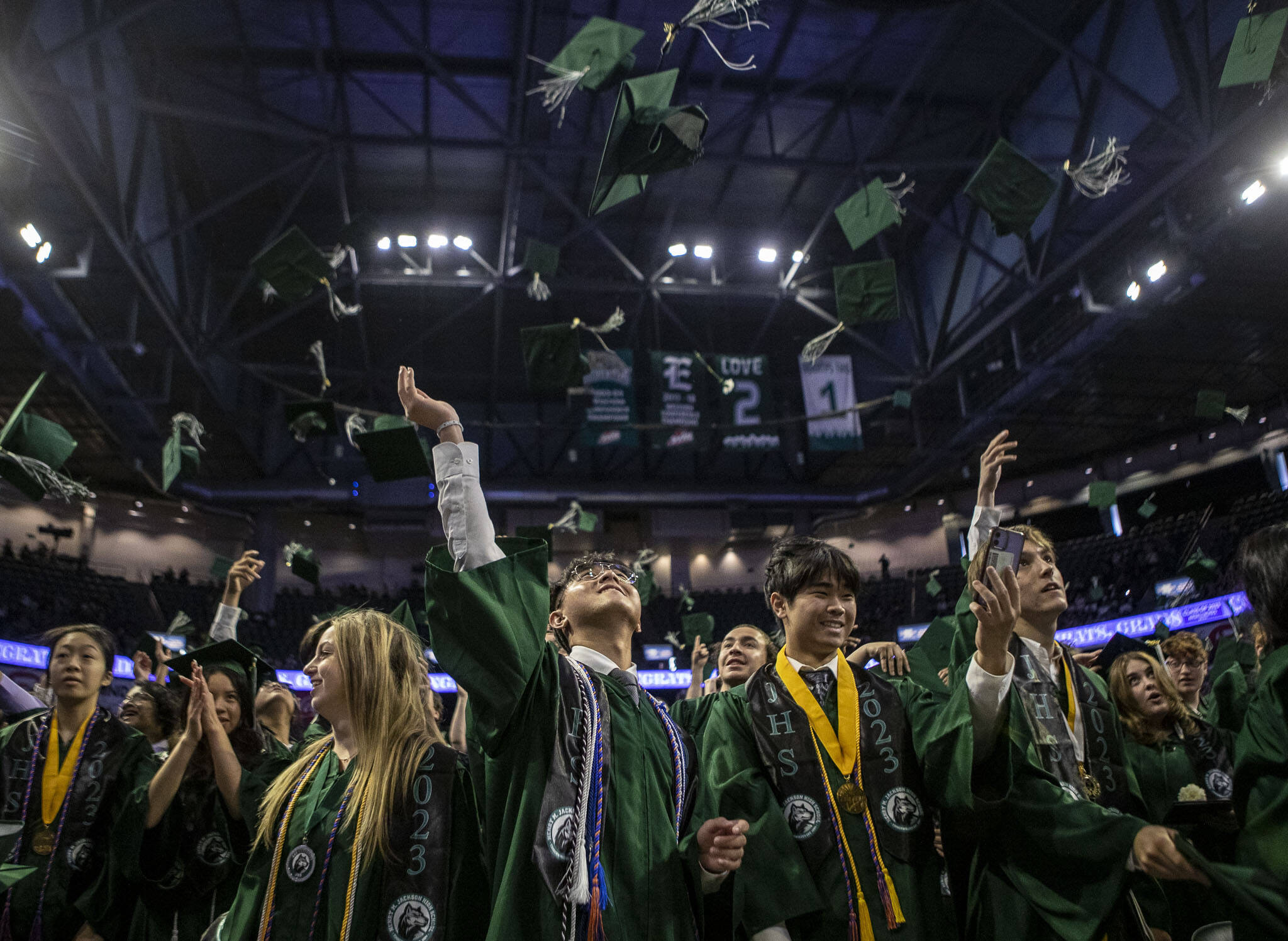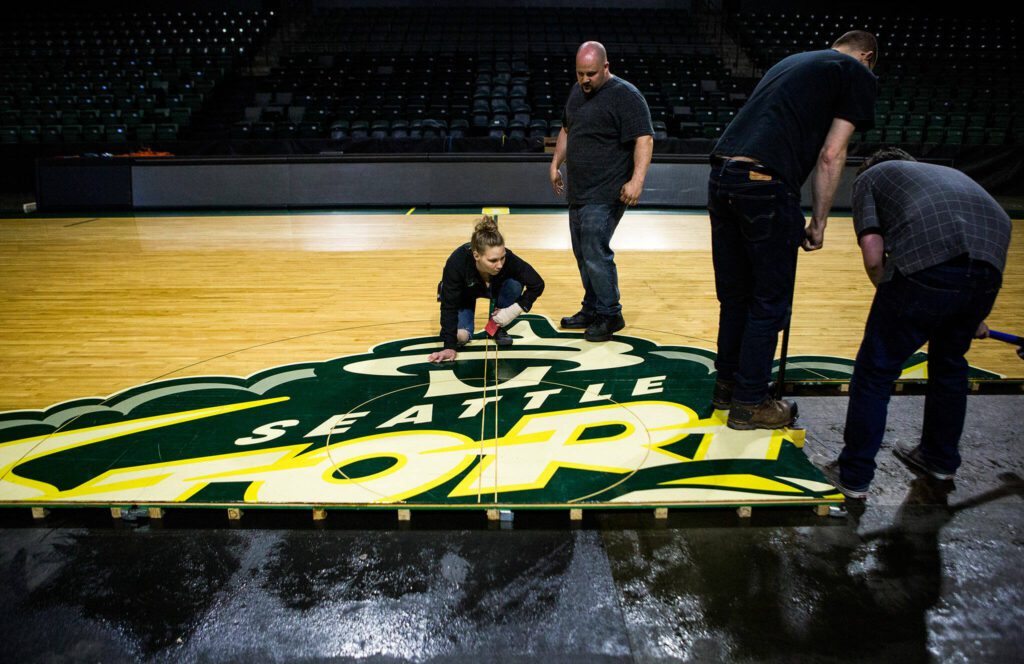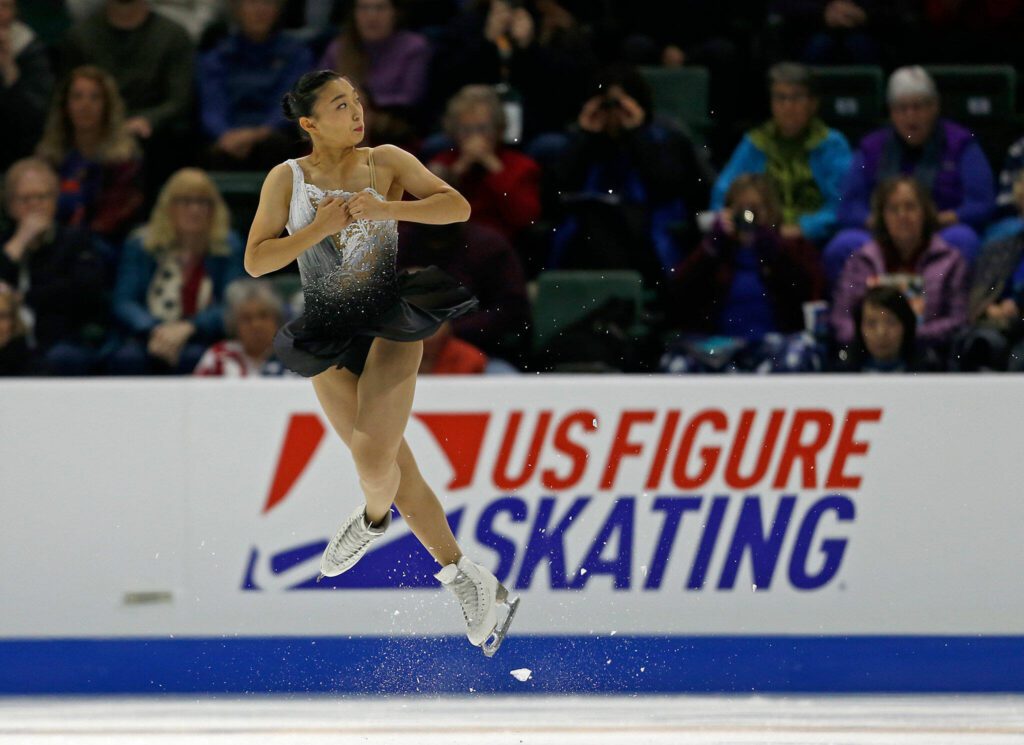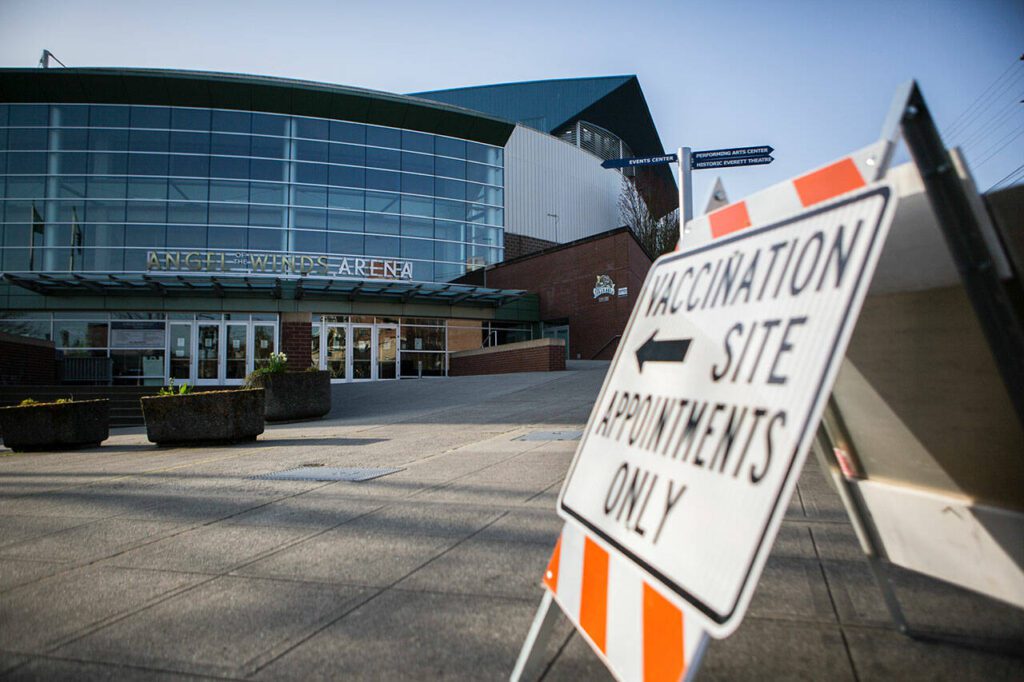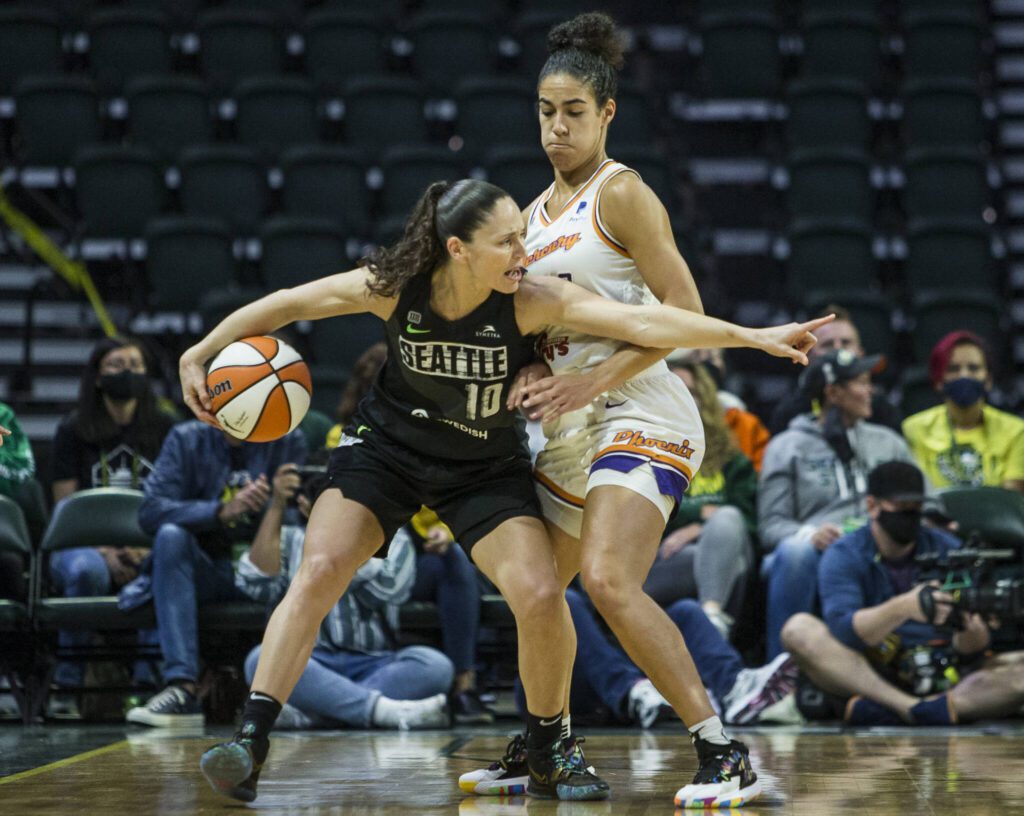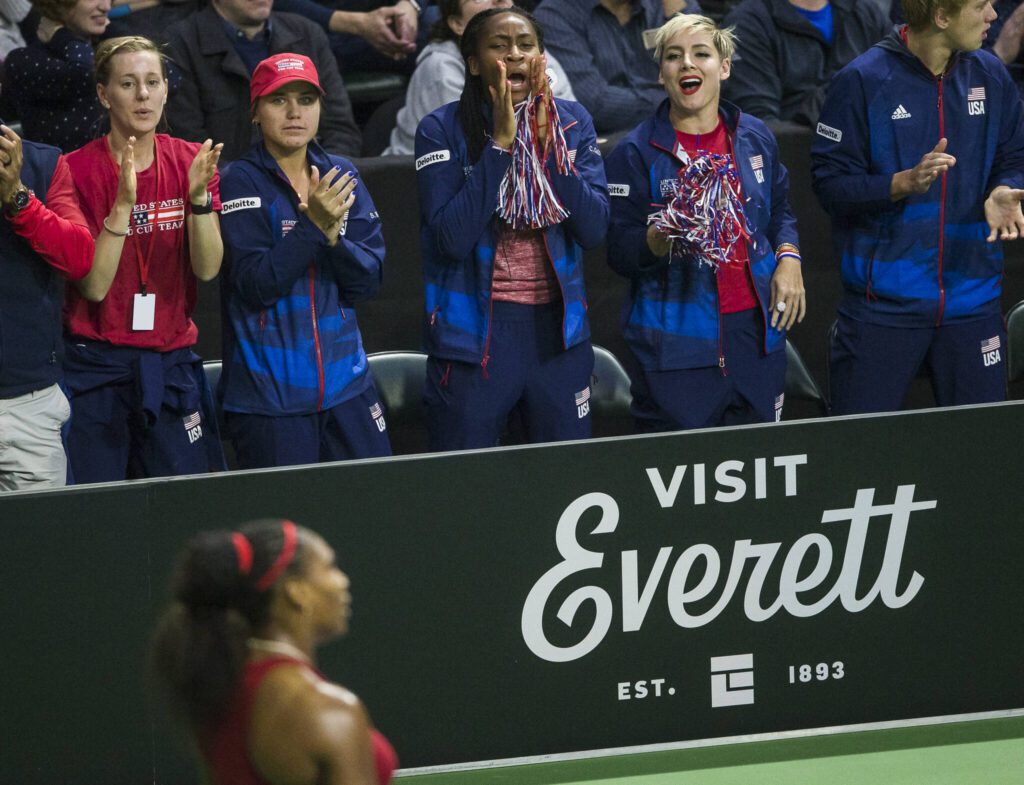EVERETT — Michael Swanson remembers life before Angel of the Winds Arena.
Twenty years ago, Everett residents had to drive south to Seattle if they wanted to see big-name performers and stadium-filling events.
Construction of the 10,000-seat arena “put Everett on the map for arts and entertainment,” said Swanson, who serves as board president of the Everett Public Facilities District. The district manages the publicly owned arena while day-to-day operations are run by private company Oak View Group. To celebrate 20 years in business, the arena will offer commemorative cups, and 210 Brewing Co. is crafting a special lager to sell at arena concession stands.
The full arena complex, which includes the Everett Community Ice Rink and Edward D. Hansen Conference Center, occupies two downtown city blocks. And while it isn’t always profitable, those venues together draw an average of 700,000 visits each year. A study published last year on the economic impact of sports venues in Everett noted the arena in 2021 helped generate $29.2 million in revenue for Snohomish County businesses, creating 240 jobs with a labor income of $11.5 million.
“It brought in a lot more restaurants, nightlife, pedestrian foot traffic that wasn’t quite here before,” Swanson said.
It’s also home to the Everett Silvertips. Before the arrival of a major junior ice hockey team, Swanson said, “Hockey was not on anybody’s radar in this town.”
The Silvertips played their first home game against the Prince George Cougars on Oct. 4, 2003. They lost 3-1, but more than 8,000 people attended, according to The Internet Hockey Database. The arena will also soon another Arena Football League team.
And other events have drawn big crowds, such as musicians Cher, Carrie Underwood, Green Day, Duran Duran, Justin Bieber, Mötley Crüe, Alice Cooper, Papa Roach and Judas Priest, to name a few. The arena’s general manager, Corey Margolis, said Everett attracts performers who don’t think they can sell out larger venues in Seattle or who figure they’ll have better ticket sales playing here.
“I jokingly refer to us as the family show capital of the world,” Margolis said. “We have a really strong poll on family shows in this market, and here versus Seattle, our demographics are way better suited for it.”
Margolis calls the arena “the center of the community,” as it hosts about 110 events a year, and the conference center another 200. The venue is versatile. Mountains of dirt have been trucked in for rodeos and massive ramps have been built for professional skateboarders. It’s been a place of celebration for the 7,000 students who attend graduation ceremonies there each year, as well as a place of somber gatherings, such as the funeral of Everett police officer Dan Rocha.
The arena has gone by several names over the years. Originally called The Everett Events Center, in 2007 it became Comcast Arena after the telecommunications company bought the naming rights for $7.4 million. Feelings from the public at the time were mixed, with one Herald reporter writing: “Comcastic or a Comcastrophy, the city’s iconic events center has a new name and it doesn’t exactly roll off the tongue.” The name changed again in 2014 to Xfinity Arena. In 2017, the naming rights were sold to Angel of the Winds Casino Resort for $3.4 million, and that contract runs through 2028.
‘A big leap of faith’
Before construction, the arena’s creation had both supporters and detractors. The project was intended to revitalize downtown Everett, but this meant the demolition of historic buildings from the early 1900s, according to the Seattle Post-Intelligencer. This included what used to be Billy’s Men’s and Boy’s Western Wear, a Jewish family-owned store operating for at least 68 years.
“So you can understand the pushback that you get from the community for that,” said Gary Weikel, who prior to construction worked as Snohomish County’s executive operations officer and would later serve on the facilities district’s board for 17 years.
Some buildings were registered historic sites, and the Everett Historical Commission wouldn’t grant waivers to allow their destruction. The Everett City Council overruled the commission’s decision, according to Seattle Times.
The increase of traffic and competition from other venues were other concerns, according to articles from the time in The Herald’s archive, but downtown merchants had high hopes. New sidewalks, street lamps and landscaping were added along Hewitt Avenue. One commercial real estate agent told The Herald he got five calls a week about leasing or buying space nearby the future arena, saying “the gold rush is on.” Still, there was anxiety leading up to the opening. Success was not assured. The arena general manager in a Seattle Times interview called the new arena “a big leap of faith.” And some had their doubts about the appeal of hockey.
“When they first came to me (about the project), I wasn’t a hockey fan, and I thought to myself ‘hockey in Everett? It’ll never happen,’” Weikel said. “And boy, was I wrong, because it did.”
In the end, construction costs were $71.5 million and it took a year and a half to complete. On opening game day crowds poured into downtown, filling up parking spaces, restaurants and bars before the puck dropped. An Everett resident motioned to a Colby Avenue sidewalk full of people, telling The Herald “It’s great. It’s Saturday night in Everett at 6 p.m. — do you ever see this many people down here? Never!”
The night’s best sellers were $3 cups of fries and $5 beers, with The Herald calling licorice “the biggest loser” after a vendor reported selling only a single box.
Not everything went off without a hitch. On opening night, the arena’s new Zamboni ice-resurfacing machine broke down, but staff were able to use an older backup. The biggest problem was a high level of humidity fogging up the plexiglass surrounding the rinks, but the issue was later solved. All kinks were ironed out and the stadium has become an Everett institution. It’s a place with special meaning for Weikel as it’s where he and his wife had their first date.
“We went to see Guns N’ Roses. Everybody laughs when I say that, because who takes their future bride to a Guns N’ Roses show?” Weikel said. As for the arena’s community impact, he adds “It met the goals that the city of Everett needed for its development.”
Eric Schucht: 425-339-3477; eric.schucht@heraldnet.com; Twitter: @EricSchucht.
Talk to us
> Give us your news tips.
> Send us a letter to the editor.
> More Herald contact information.
